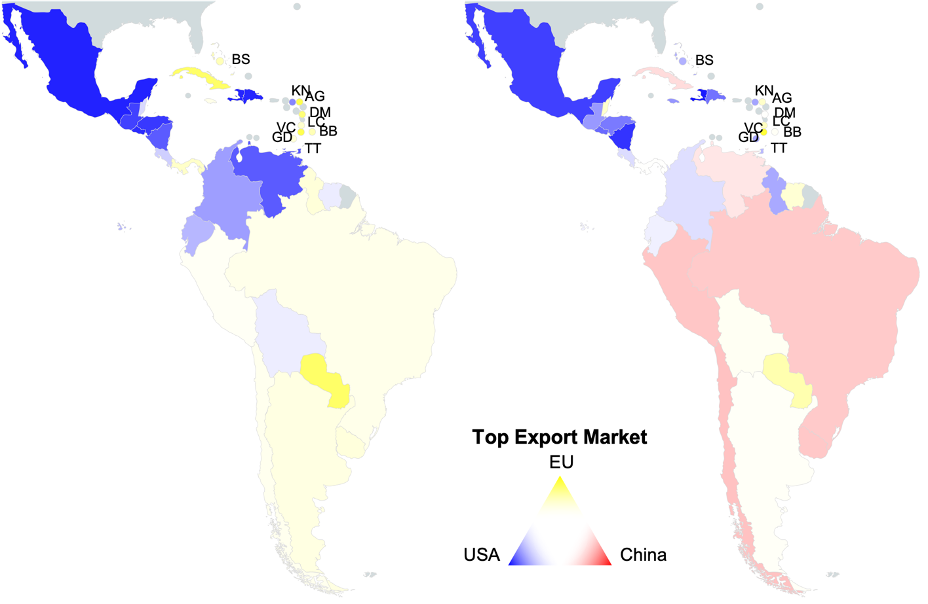Shifting Trade Winds: Canada's Approach Wins Favor In Washington

Table of Contents
The USMCA's Positive Impact
The United States-Mexico-Canada Agreement (USMCA), the successor to NAFTA, has been instrumental in strengthening Canada-US trade. This modern trade agreement has delivered significant benefits for both countries, boosting economic growth and creating new opportunities. The USMCA's positive impact on Canada-US trade relations is undeniable.
- Increased Trade Volumes: Since its implementation, the USMCA has led to a noticeable increase in bilateral trade volumes between Canada and the US. Data from [insert source, e.g., Statistics Canada] shows a [insert percentage]% increase in [insert specific type of trade, e.g., agricultural exports] between [insert years]. This demonstrates the agreement's effectiveness in facilitating smoother cross-border commerce.
- Economic Growth and Job Creation: The agreement's tariff reductions and streamlined customs procedures have stimulated economic growth in both countries. The increased trade has also led to job creation, particularly in sectors like agriculture and automotive manufacturing, bolstering the economies of both nations. Analysis by [insert source, e.g., Congressional Research Service] indicates that the USMCA has contributed to [insert quantified economic impact].
- Sector-Specific Benefits: The automotive industry, a cornerstone of both economies, has significantly benefited from the USMCA's provisions. The agreement's rules of origin have incentivized greater regional production and integration. Similarly, the agricultural sector has seen increased trade in products such as dairy and grains, highlighting the benefits of the modernized trade agreement for Canada-US trade.
- Improvements over NAFTA: The USMCA addresses several shortcomings of its predecessor, NAFTA, such as strengthening labor and environmental protections, enhancing intellectual property rights, and modernizing digital trade provisions. These improvements have built a more robust and equitable framework for Canada-US trade, showcasing a commitment to both economic and social progress.
Canada's Proactive Engagement with the US
Canada's success in Washington is not solely attributed to the USMCA. It's also the result of consistent and proactive engagement in bilateral diplomacy and trade negotiations. This collaborative approach has fostered trust and mutual respect.
- High-Level Diplomacy: Canadian officials regularly engage in high-level discussions with their US counterparts to address trade-related issues and broader economic concerns. These meetings, often involving ministers and high-ranking diplomats, are crucial for maintaining open communication channels and resolving disputes amicably.
- Government Initiatives: The Canadian government has actively promoted its trade interests through targeted initiatives focused on showcasing Canadian strengths and addressing US concerns. This includes targeted outreach to specific sectors and fostering collaborative research and development projects.
- Addressing US Concerns: Canada has demonstrated a willingness to address US concerns constructively, showing flexibility and a commitment to finding mutually acceptable solutions. This approach builds trust and underscores Canada's reliability as a trade partner, leading to more stable and predictable trade relations.
- Collaborative Approach: Canada consistently promotes a collaborative approach, emphasizing shared interests and seeking win-win solutions. This approach stands in contrast to more adversarial strategies, resulting in stronger relationships and more effective trade outcomes in the overall Canada-US trade relationship.
Alignment on Shared Priorities
Strong Canada-US trade relations are built on a foundation of shared values and common interests. The alignment on key priorities strengthens the overall bilateral relationship and creates a stable trading environment.
- Security Cooperation: Both countries prioritize security cooperation, including border security and counterterrorism efforts. This shared commitment reinforces mutual trust and facilitates smoother cross-border trade flows.
- Environmental Protection: Canada and the US share a commitment to environmental protection and collaborate on initiatives to address climate change. This shared concern strengthens the relationship and opens avenues for cooperation in the development of sustainable trade practices.
- North American Competitiveness: Both countries recognize the importance of maintaining North American competitiveness in the global economy. Collaboration on trade policy and economic development enhances this competitiveness, benefiting both economies.
- Supply Chain Resilience: The emphasis on supply chain resilience, particularly following recent global disruptions, has further strengthened the bilateral relationship. Canada's role as a reliable supplier of critical minerals and resources reinforces its importance to the US economy.
Addressing Concerns Regarding Critical Minerals and Supply Chains
Canada's role as a significant supplier of critical minerals is increasingly crucial for US national security and economic interests. This has strengthened the bilateral trade relationship significantly.
- Critical Mineral Supply: Canada possesses abundant reserves of critical minerals essential for various industries, including renewable energy and advanced technologies. This makes Canada a key partner for the US in securing reliable and diversified supply chains.
- Supply Chain Diversification: The focus on supply chain diversification, away from reliance on single sources, has strengthened the bilateral relationship. Canada's role in providing these critical minerals contributes to this diversification, ensuring greater security for the US.
- Resource Security: Access to stable and reliable supplies of critical minerals is essential for both countries’ economic and national security. Canada’s reliable supply contributes directly to bolstering US resource security.
- Renewable Energy Initiatives: Collaboration on renewable energy initiatives, such as the production and processing of critical minerals for batteries and solar panels, strengthens the partnership and facilitates green economic growth.
Conclusion
Canada's strategic approach to trade, coupled with its proactive engagement and alignment with US priorities on key issues like critical minerals and supply chain security, has yielded significant dividends. The success of the USMCA, combined with strong bilateral diplomacy, positions Canada as a valued and reliable trade partner for the United States. This strong Canada-US trade relationship is vital to the economic well-being of both nations.
To further understand the nuances of the evolving Canada-US trade relationship and the strategic advantages of Canada's approach, explore further resources on bilateral trade agreements and economic partnerships. Stay informed on the shifting trade winds and the benefits of strengthening Canada-US trade relations.

Featured Posts
-
 Untold Story Star Wars Series Reveals The Beginning Of A Rogue One Favorite
May 08, 2025
Untold Story Star Wars Series Reveals The Beginning Of A Rogue One Favorite
May 08, 2025 -
 Demolition Makes Way For New Park In Pierce County
May 08, 2025
Demolition Makes Way For New Park In Pierce County
May 08, 2025 -
 Is Grand Theft Auto Vi Setting Up A Bonnie And Clyde Heist Trailer 2 Analysis
May 08, 2025
Is Grand Theft Auto Vi Setting Up A Bonnie And Clyde Heist Trailer 2 Analysis
May 08, 2025 -
 Pese Yje Te Psg Largohen Nen Drejtimin E Luis Enriques
May 08, 2025
Pese Yje Te Psg Largohen Nen Drejtimin E Luis Enriques
May 08, 2025 -
 Dodger Mookie Betts Misses Freeway Series Opener Due To Illness
May 08, 2025
Dodger Mookie Betts Misses Freeway Series Opener Due To Illness
May 08, 2025
Latest Posts
-
 Superman Footage Analysis More Than Just Krypto A Critical Scene Discussion
May 08, 2025
Superman Footage Analysis More Than Just Krypto A Critical Scene Discussion
May 08, 2025 -
 I Just Watched The New Superman Footage Krypto Steals The Show But This Moment Is Bigger
May 08, 2025
I Just Watched The New Superman Footage Krypto Steals The Show But This Moment Is Bigger
May 08, 2025 -
 Exploring The Top Krypto Stories And Their Impact
May 08, 2025
Exploring The Top Krypto Stories And Their Impact
May 08, 2025 -
 A Comprehensive Look At The Best Krypto Stories
May 08, 2025
A Comprehensive Look At The Best Krypto Stories
May 08, 2025 -
 Reviewing The Best Krypto Stories In Comic Book History
May 08, 2025
Reviewing The Best Krypto Stories In Comic Book History
May 08, 2025
